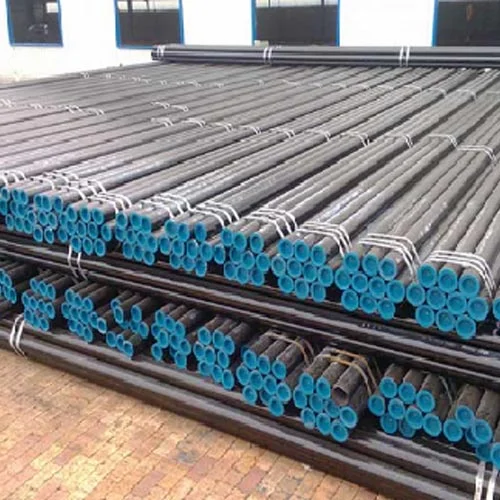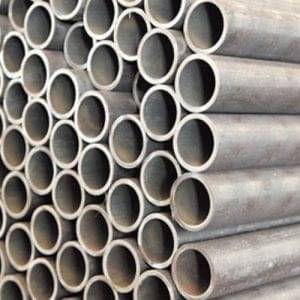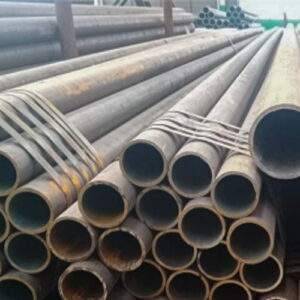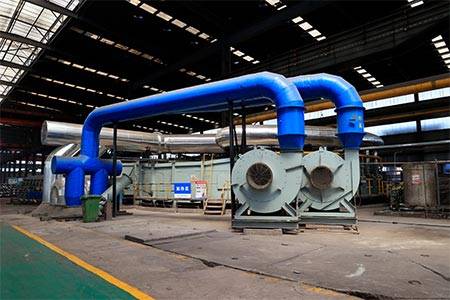Introduction
Galvanised steel pipes are essential components in the construction industry due to their durability, corrosion resistance, and versatility. These pipes are coated with a layer of zinc to protect the steel from rust and corrosion, making them ideal for various applications in construction projects. In this comprehensive guide, we will explore the top uses for galvanised steel pipes in construction, highlighting their benefits and providing practical insights for selecting the right type for your needs.
What is Galvanised Steel Pipe?

Galvanised steel pipe is steel pipe that has been coated with a protective layer of zinc. This coating helps prevent corrosion and rust, extending the life of the pipe and making it suitable for outdoor and indoor applications. The process of galvanisation involves dipping the steel pipe into molten zinc, creating a robust and durable coating that adheres to the steel surface.
Benefits of Galvanised Steel Pipe
- Corrosion Resistance: The zinc coating provides a protective barrier against moisture and other corrosive elements.
- Durability: Galvanised steel pipes have a longer lifespan compared to non-coated pipes.
- Cost-Effective: These pipes require less maintenance and have lower replacement costs over time.
- Versatility: Suitable for a wide range of construction applications, both indoors and outdoors.
Top Uses for Galvanised Steel Pipe in Construction
Structural Support
Galvanised steel pipes are widely used in construction for structural support due to their strength and durability. They are often used in the following applications:
- Building Frames: Galvanised steel pipes provide strong and stable frames for buildings, supporting walls, floors, and roofs.
- Scaffolding: These pipes are commonly used to create scaffolding structures, offering safe and reliable support for workers and materials.
- Bridges: The robust nature of galvanised steel pipes makes them suitable for use in the construction of bridges, providing long-lasting structural integrity.
Plumbing Systems
One of the most common uses for galvanised steel pipes is in plumbing systems. Their resistance to corrosion makes them ideal for transporting water and other fluids:
- Water Supply Lines: Galvanised steel pipes are used for water supply lines in residential and commercial buildings, ensuring a clean and safe water supply.
- Sewage and Drainage Systems: These pipes are also used in sewage and drainage systems due to their durability and resistance to corrosion from waste materials.
- Fire Sprinkler Systems: The reliability of galvanised steel pipes makes them a preferred choice for fire sprinkler systems, providing a dependable water supply during emergencies.
Fencing and Railings
Galvanised steel pipes are popular for use in fencing and railings due to their strength and weather resistance:
- Fencing: These pipes are used to construct sturdy and long-lasting fences for residential, commercial, and industrial properties.
- Railings: Galvanised steel pipes are also used for railings on staircases, balconies, and decks, offering safety and durability.
Electrical Conduits
In the construction of electrical systems, galvanised steel pipes serve as conduits to protect and route electrical wiring:
- Electrical Conduits: These pipes provide a secure and protected pathway for electrical wiring, preventing damage and ensuring safety.
- Cable Protection: Galvanised steel pipes are used to shield cables from environmental factors, extending their lifespan and reducing maintenance costs.
HVAC Systems
Heating, ventilation, and air conditioning (HVAC) systems benefit from the use of galvanised steel pipes:
- Ductwork: Galvanised steel pipes are used in HVAC systems to create durable and corrosion-resistant ductwork for air distribution.
- Exhaust Systems: These pipes are also used in exhaust systems to safely vent gases and fumes from buildings.
Comparison of Galvanised Steel Pipe Uses
| Use Case | Benefits | Key Considerations |
|---|---|---|
| Structural Support | High strength, long-lasting, reliable | Requires precise installation and regular inspections |
| Plumbing Systems | Corrosion resistance, safe water transport, low maintenance | Potential for zinc leaching in drinking water |
| Fencing and Railings | Weather resistance, durability, low maintenance | Aesthetic appeal may vary based on coating quality |
| Electrical Conduits | Protection for wiring, safety, durability | Must meet electrical safety standards |
| HVAC Systems | Corrosion resistance, durable ductwork, efficient airflow | Regular maintenance required for optimal performance |
Choosing the Right Galvanised Steel Pipe for Your Project
Assessing Project Requirements
Before selecting a galvanised steel pipe for your project, it’s crucial to assess your specific requirements:
- Load-Bearing Capacity: Determine the load-bearing requirements to ensure the selected pipe can handle the necessary weight and stress.
- Environmental Factors: Consider environmental conditions such as exposure to moisture, chemicals, or extreme temperatures that may impact the pipe’s performance.
- Regulatory Standards: Ensure the pipes meet local building codes and industry standards for safety and performance.
Evaluating Pipe Specifications
When choosing a galvanised steel pipe, evaluate the following specifications:
- Pipe Diameter: Select the appropriate diameter based on the application and flow requirements.
- Wall Thickness: Thicker walls provide greater strength and durability, suitable for heavy-duty applications.
- Zinc Coating Thickness: A thicker zinc coating offers better corrosion resistance, enhancing the pipe’s lifespan.
Comparing Cost and Quality
Balancing cost and quality is essential when selecting galvanised steel pipes:
- Budget Constraints: Choose pipes that fit within your budget while meeting the necessary quality standards.
- Quality Assurance: Look for manufacturers with a reputation for producing high-quality galvanised steel pipes, ensuring reliability and performance.
Maintenance Tips for Galvanised Steel Pipes

Regular Inspections
Conduct regular inspections to identify any signs of damage or wear:
- Check for Corrosion: Inspect the pipes for any signs of corrosion or rust, particularly at joints and connections.
- Assess Structural Integrity: Ensure the pipes remain structurally sound and free from cracks or deformities.
Cleaning and Protection
Maintain the pipes’ condition by implementing proper cleaning and protection measures:
- Remove Debris: Regularly clean the pipes to remove dirt, debris, and any corrosive substances.
- Apply Protective Coatings: Consider applying additional protective coatings to enhance the pipes’ resistance to environmental factors.
Repairs and Replacements
Address any issues promptly to ensure the longevity of the pipes:
- Repair Minor Damage: Perform repairs on minor damages such as small cracks or surface rust to prevent further deterioration.
- Replace Severely Damaged Pipes: Replace pipes that are severely damaged or corroded to maintain the overall integrity of the system.
Conclusion
Galvanised steel pipes are versatile and durable components in the construction industry, offering numerous benefits for structural support, plumbing systems, fencing, electrical conduits, and HVAC systems. By understanding their uses and selecting the right type of galvanised steel pipe for your project, you can ensure optimal performance and longevity. Regular maintenance and proper care are essential to maximize the benefits of these pipes and ensure their continued reliability.
FAQs
What is the lifespan of galvanized steels?
The lifespan of galvanized steels can vary depending on factors such as environmental conditions and maintenance. Generally, these pipes can last between 20 to 50 years with proper care.
Can galvanized steels be used for drinking water?
While galvanized steels are commonly used for water supply lines, they may not be suitable for drinking water due to the potential for zinc leaching. It’s essential to check local regulations and consider alternative materials for drinking water systems.
How do I prevent corrosion on galvanized steels?
To prevent corrosion, ensure the pipes are properly installed, regularly cleaned, and maintained. Applying additional protective coatings can also enhance corrosion resistance.
Are galvanized steels suitable for outdoor use?
Yes, galvanized steels are suitable for outdoor use due to their corrosion resistance and durability. They are commonly used in applications such as fencing, railings, and outdoor plumbing systems.
What is the difference between galvanised steel pipes and black steel pipes?
Galvanised steel pipes have a zinc coating that provides corrosion resistance, making them suitable for outdoor and wet environments. Black steel pipes, on the other hand, do not have a coating and are typically used for indoor applications such as gas lines.




